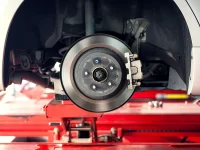Exploring the Transformative Benefits of Learning an Industrial Design Course in 2023

In 2023, enrolling in an industrial design course is an investment in creativity, innovation, and the future. The advantages extend well beyond the present, transforming designers into multidimensional experts capable of navigating the shifting design scene. The benefits are numerous and significant, ranging from mastering design tools to supporting sustainability. As designers embrace technology, diversity, and sustainable practices, they help to create a world that is not just beautiful but also useful, user-centric, and socially responsible. In 2023, taking an industrial design course is a transformational experience that will pave the way for a future of limitless innovation and lasting effects.
If you’re seeking for Industrial Design Courses in Chennai, CADD Centre Vadapalani and Porur branches are your go-to institutes, providing expert guidance and comprehensive courses to master this essential design software.
Introduction
The discipline of industrial design stands out as a light of potential in the ever-changing environment of creativity, innovation, and technology. In 2023, taking an industrial design education brings up a world of creativity, benefit, and employment options. This in-depth article digs into the numerous benefits of beginning an industrial design journey this year, providing light on how this immersive experience may influence both personal growth and professional success.
Creative Expression and Innovation
Studying industrial design is connected with embracing one’s creative soul. An industrial design education encourages students to explore their creativity, experiment with ideas, and bring imagination to life in a world that honours creativity. As the capacity to think creatively and produce original design ideas grows more relevant across sectors, it becomes a valuable asset.
Mastery of Design Tools and Software
In 2023, the importance of technology in design will be critical. Students who take an industrial design course have hands-on exposure to cutting-edge design tools and software. Students learn skills in tools that characterize modern design practices, ranging from 3D modeling software to virtual reality apps.
Collaboration and Cross-Disciplinary Skills
Industrial design is a collaborative profession that crosses several disciplines. Learning an industrial design course promotes teamwork by allowing students to connect with experts from various backgrounds. This cross-disciplinary experience improves communication skills, teamwork, and the capacity to collaborate in interdisciplinary projects effortlessly.
User-Centric Design Thinking
Learning an industrial design course emphasizes user-centric design thinking in a period where user experience drives product success. Understanding consumer wants, interests, and behaviors is essential for creating products that resonate with them. As customers’ expectations rise, the ability to design with empathy and user insights becomes increasingly crucial.
Embracing Technological Integration
The advent of technology has brought forth a new era of technical integration in design. Students who take an industrial design degree in 2023 will be able to easily integrate technology into their creations. Designers are ready to develop goods that correspond with the digital era, from adding IoT (Internet of Things) aspects to creating ideas for virtual reality settings.
Sustainable Design Principles
Sustainability is no longer a choice; it is a must. Sustainable design elements are heavily emphasized in 2023 industrial design courses. Designers are qualified to produce goods that minimize the environmental effect, eliminate waste, and contribute to a better future as society wants eco-friendly solutions.
Profound Impact on Career Trajectory
The advantages of taking an industrial design course go beyond the classroom. Individuals who finish such courses are confronted with a wealth of professional prospects, as the need for experienced designers is on the rise. The options range from product design and vehicle design to UX/UI design and beyond.
Exposure to Industry Trends
It is essential for every designer to stay current with industry trends. Students that take an industrial design course will be well-versed in evolving design styles, materials, and technology. This information provides designers with the foresight they need to build designs that meet current market expectations.
Portfolio Development and Showcasing Creativity
A well-crafted portfolio serves as the designer’s canvas. Students that take an industrial design course can produce a portfolio that demonstrates their creativity, talents, and growth. This portfolio will be used for job applications, client pitches, and personal branding.
Real-World Application and Hands-On Experience
A designer cannot be shaped just by theory. An industrial design course gives students real, hands-on experience. Students work on real-world design projects that replicate professional issues, from conception and sketching through prototyping and testing.
Leveraging Data-Driven Insights
Data-driven design is becoming more popular across sectors. Students that take an industrial design course learn about the power of data analytics and user behavior insights in affecting design decisions. Designers may utilize data to build products that are suitable to the tastes and demands of the users.
Building a Legacy of Design Excellence
Learning an industrial design certification is about more than simply personal development; it’s about leaving a legacy. The designs generated during the course serve as a tribute to the path of a designer. These works contribute to a portfolio that demonstrates development, innovation, and a dedication to design quality.
Contributing to Sustainable Development Goals
Designers have a role to play in tackling global concerns in accordance with the United Nations Sustainable Development Goals. Individuals who complete an industrial design education will be able to contribute to these aims by designing designs that address concerns such as climate change, accessibility, and social equality.
Conclusion
Learning an industrial design education is a life-changing experience that goes beyond simply learning new skills. It fosters creativity, improves problem-solving skills, and offers doors to a wide range of professional prospects. The demand for talented industrial designers stays strong as technology progresses and businesses adapt. Individuals that begin on this road not only polish their creative skills, but also help to shape a more inventive, useful, and aesthetically pleasing environment. So, whether you’re interested in product design, user experience, or the art of creation, an industrial design education opens the door to a world of limitless possibilities and unlimited creativity.







